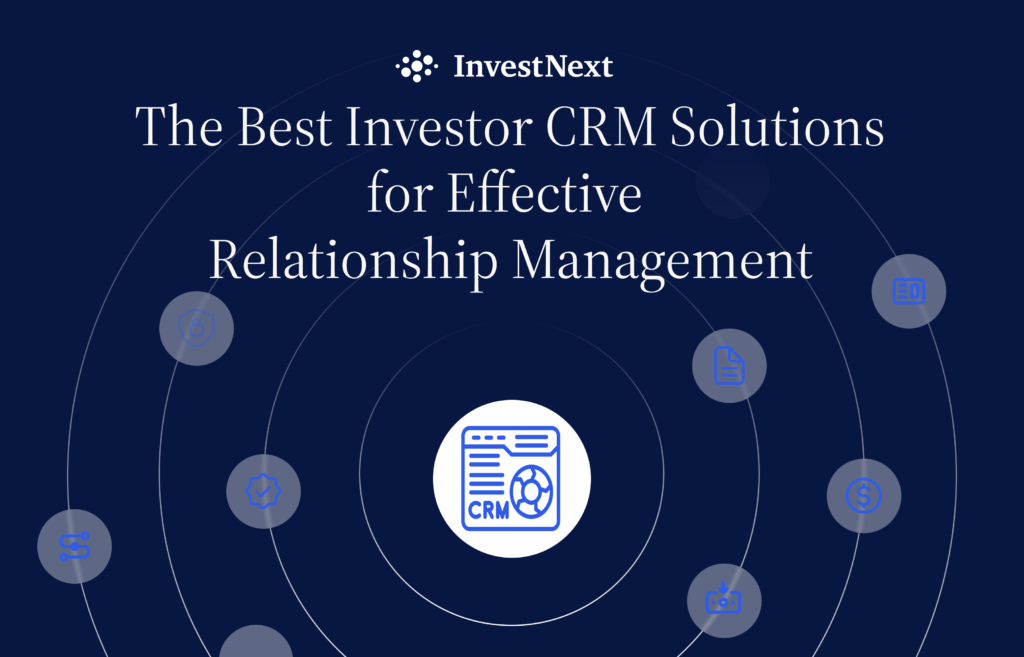Real estate investment is a promising avenue for generating wealth, but the initial capital required can be a barrier for many potential investors. To overcome this challenge, financing options are available to help investors acquire properties without having the full purchase price in cash.
Real estate financing methods are not limited to traditional mortgages from banks. There are multiple avenues that cater to different investment needs, such as investment-specific loans tailored for rental properties or short-term flips.
Borrowing money to invest in real estate can be a lucrative option, as it allows investors to acquire properties that would have otherwise been out of reach. This not only frees up their cash for other investments but also increases the potential for higher profits, especially when property values rise.
However, borrowing money also comes with risks, as investors would be in debt and have to cover interest payments. To mitigate these risks, investors must conduct thorough research to ensure that the potential rental income or sale price of the property will cover the loan payments and generate profits.

Loans For Investment Property: Benefits of Borrowing Money
Real estate has always been a lucrative avenue for investors. With the potential for significant returns and the stability it offers in comparison to other investment types, it’s no wonder that many are drawn to this sector. One of the primary strategies employed by investors in the real estate market is leveraging borrowed money. But why do people borrow money when investing in real estate? Let’s delve into the benefits.
Leverage Increases Potential Returns
One of the most compelling reasons to borrow money for real estate is the concept of leverage. By using borrowed capital, investors can control larger assets with a smaller upfront investment. This means that even with a minimal amount of your own money, you can reap the benefits of a property’s appreciation. For instance, a 20% down payment on a property allows you to control 100% of its value. If the property appreciates, your returns are calculated on the total value, not just your initial investment.
Enhanced Cash Flow
Borrowing money to invest in rental properties can lead to a stable and positive cash flow. With a mortgage, you can secure a property that generates rental income. If this income exceeds your property expenses, including the loan repayment, you achieve a positive cash flow. This regular income can be reinvested or used to cover other expenses.
Tax Benefits
One of the often-overlooked benefits of borrowing money for real estate is the tax advantages it offers. The interest paid on loans for purchasing properties is tax-deductible. This deduction can significantly reduce your taxable income, making homeownership and real estate investment even more beneficial.
Diversification of Portfolio
Using borrowed funds allows investors to diversify their portfolio. Instead of sinking all your capital into one property, loans enable you to spread your investment across multiple properties in different market segments or regions. This diversification can protect your investments from localized market downturns.
Protection Against Inflation
With fixed-rate mortgages, your loan repayment amounts remain constant. However, rental income and property values tend to rise with inflation. This means that while your loan payments stay the same, your income potential increases, offering a hedge against inflation.

Different Loan Types for Real Estate Investment
Understanding the various loan options available is crucial when considering how to borrow money to invest in real estate. Each loan type comes with its own set of terms, interest rates, and requirements. Here’s a breakdown of the most common loan types:
- Investment Property Loans:
- Specifically designed for properties that will be used as an investment rather than a primary residence.
- Typically require a larger down payment and come with higher interest rates than primary residence loans.
- Loans for Investment Property:
- These are general loans that can be used for any type of real estate investment.
- They offer flexibility but might have stringent approval criteria and higher interest rates.
- Rental Property Loans:
- Tailored for properties that are intended to be rented out.
- Lenders often assess potential rental income when considering loan approval.
- Investment Loans:
- A broader category that encompasses any loan used to purchase an investment.
- This can include real estate as well as other investment types.
Is It Smart to Borrow Money to Invest in Real Estate?
Real estate investment has always been a topic of interest for both novice and seasoned investors. The allure of tangible assets, potential rental income, and property appreciation makes it an attractive avenue for diversifying one’s investment portfolio. However, a common dilemma faced by many is whether to borrow money for real estate investment. Let’s delve into the pros and cons.
Advantages of Borrowing for Real Estate Investment:
- Leverage: Borrowing allows investors to purchase properties that might be out of reach if paying entirely in cash. This leverage can amplify potential returns if property values increase.
- Diversification: Instead of putting all your cash into one property, borrowing can enable you to spread your investment across multiple properties, diversifying risk.
- Tax Benefits: Interest on mortgages for investment properties can often be deducted, offering potential tax advantages.
- Cash Flow Management: By not tying up all your cash in a property purchase, you maintain liquidity for other opportunities or emergencies.
Risks of Borrowing for Real Estate Investment:
- Market Fluctuations: If property values decrease, you could owe more on the mortgage than the property is worth.
- Interest Rate Risks: If you have a variable-rate mortgage, rising interest rates could increase your monthly payments.
- Cash Flow Pressure: If rental income doesn’t cover your mortgage payments and other expenses, you could face financial strain.
- Potential for Over-leveraging: Borrowing too much can expose you to higher risks, especially if market conditions turn unfavorable.
Real Estate Investment Management Platform
The integration of technology and data-driven insights has become paramount when thinking about how to borrow money to invest in real estate. Real estate investment management platforms have emerged as powerful tools, offering investors a streamlined approach to manage and optimize their portfolios. But what exactly are these platforms, and how do they transform the investment process?
Comprehensive Portfolio Oversight
Real estate investment management platforms provide a consolidated view of an investor’s assets. This holistic perspective allows for better decision-making, as investors can quickly assess the performance of individual properties and the portfolio as a whole. With real-time data at their fingertips, investors can make informed decisions, whether it’s about acquiring a new property or divesting from an underperforming asset.
Data-Driven Insights
One of the standout features of these platforms is their ability to harness the power of data analytics. By analyzing market trends, property valuations, and tenant behavior, these platforms offer predictive insights that can guide investment strategies. A study from Saïd Business School highlights the potential of technology in reshaping the future of real estate investment management. It underscores the importance of leveraging advanced data analytics to enhance fundamentals-based analysis.
Streamlined Operations
Beyond analytics, real estate investment management platforms simplify the operational aspects of property management. From tenant communication to maintenance requests and financial reporting, these platforms offer a centralized hub for all property-related tasks. This not only saves time but also ensures that nothing falls through the cracks.
Enhanced Collaboration
For investors who collaborate with partners or stakeholders, these platforms facilitate seamless communication. Sharing reports, discussing strategies, or evaluating potential investments becomes effortless, fostering a collaborative environment that can drive better investment outcomes.

The Importance of Informed Decision-Making in Real Estate Investment
Real estate, with the potential for significant returns, it’s no wonder that many are drawn to it. However, the path to successful real estate investment is paved with informed decisions . Let’s delve deeper into the importance of these decisions and the factors that influence them and the answer to how to borrow money to invest in real estate.
Real Estate Investment Decision-Making: A Comprehensive Overview
Real estate investment decision-making is a multifaceted process that requires a thorough understanding of various components. At its core, it revolves around the assessment of properties, market trends, financial implications, and potential risks. Making informed decisions in this domain can be the difference between a profitable investment and a financial misstep.
Key Factors Influencing Real Estate Decisions
- Market Dynamics: Understanding the current state of the real estate market is crucial. This includes knowledge about property prices, demand and supply dynamics, and future market predictions.
- Location: The age-old adage, “location, location, location,” holds true. The location of a property can significantly influence its appreciation potential.
- Financial Implications: This encompasses the initial investment required, potential returns, and the financial risks involved.
- Type of Property: Whether it’s residential, commercial, or industrial, the type of property plays a pivotal role in determining its investment potential.
- External Factors: Elements like technological advancements, changes in local or national laws, and even global events like pandemics can influence the real estate market.
- Investment Horizon: Whether you’re looking for short-term gains or long-term appreciation can influence your investment choices.
- Risk Appetite: Every investor has a different risk tolerance. Understanding your own can help in making decisions that align with your financial goals and comfort levels.
Conclusions: The Power of Informed Real Estate Investment
The journey of real estate investment is intricate, filled with opportunities and challenges. As we’ve explored, understanding the basics of financing, leveraging borrowed money, and choosing the right loan type are all pivotal steps in this journey. But beyond these technical aspects, the essence of successful real estate investment lies in informed decision-making.
InvestNext, a Detroit-based real estate investment platform, stands as a testament to the power of technology in facilitating informed decisions. This all-in-one platform is tailored for real estate investment syndications and firms, offering a streamlined solution that brings transparency and trust to the investment cycle. From signing legal documents to funding investments in a single workflow, InvestNext has revolutionized the way investors and investment firms interact.
For those keen on diving into the world of real estate investment, platforms like InvestNext are invaluable. They not only simplify the investment process but also offer insights that can shape your investment strategies.



